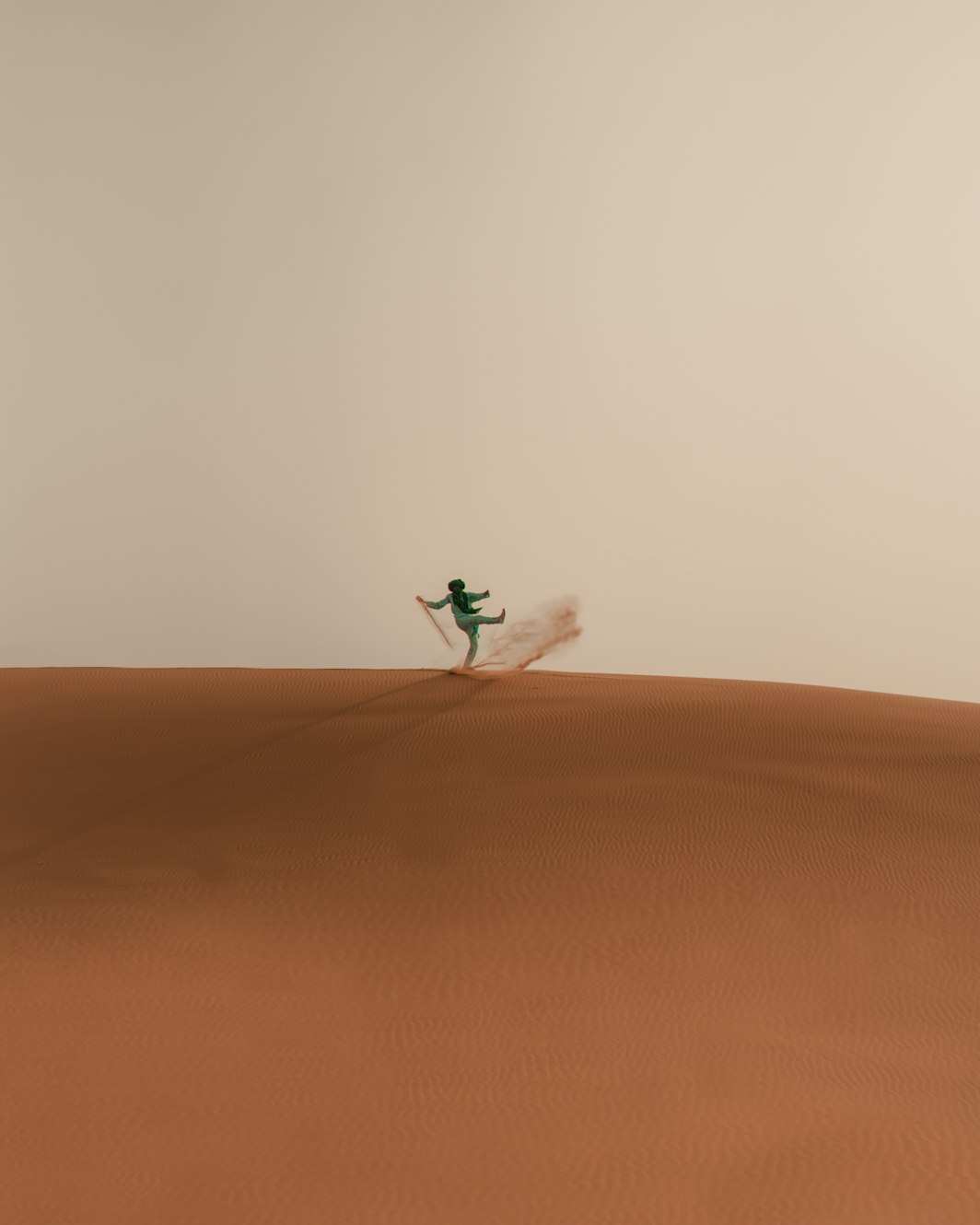The Cirqle’s Blueprint for Multi-Market Creator Campaigns

Share
Why Multi-Market Creator Programs Win Now: The Evidence and Operating Principles
Multi-market creator programs beat single-market efforts when brands combine local creator fit with centralized, AI-driven planning, measurement and paid amplification — a model that predicts before it pays, pilots narrowly then scales by thresholds, designs audiences per creator and closes the loop between organic signal and paid media to optimize in real time [1] and by automating audience creation and leveraging platform partnerships brands reduce execution friction while improving targeting [2]. Structured, step-up budgets preserve efficiency as you unlock new markets [3], and deep platform partnerships unlock API-verified creator analytics that make cross-market scale reliable [4].
From Pilot to Portfolio: Market Selection, Sizing, and Test Design
Market readiness and prioritization
Begin with a market scoring model that combines category maturity, paid-media CPM/CPC norms, creator supply density, compliance complexity and logistics readiness. Score each market on expected CAC payback, audience overlap with current customers, competitive saturation and localization effort. Prioritize markets with a short CAC payback window, clean creative compliance and a dense supply of creators whose audiences align with your ICP.
Practical inputs: use CPM/CPC benchmarks and historical LTV/CAC to estimate market-level payback; overlay creator supply (creator-per-100k users) to size potential reach; and flag regulatory or logistics risks that raise operating cost. Build a heatmap and group markets into initial pilots, second-wave rollouts and long-term holds.
Pilot design ("Start small & sharp")
Run tight, thesis-driven pilots. Pick 1–2 ICPs per market and 5–10 creators with high predicted RoAS. Brief for 2–3 formats per creator (short form, story, static) and 3–5 hooks per format so you can test messaging and platform fit quickly. Prioritize Instagram Reels and TikTok but include creator whitelisting/Partnership Ads in the mix early — they accelerate learnings by closing the creative-to-paid loop.
Set pilot logistics: production windows, UGC authenticity standards, license windows, and a minimal paid amplification plan to surface early RoAS signals. Keep pilots short (14–21 days) and instrument every touch with UTMs and server-side events to preserve signal when you scale.
Decision gates and scaling thresholds
Predefine three gates: content-market fit (creative testing), creator-market fit (audience response) and media scalability (paid amplification performance). Assign targets for CPR, CPA, RoAS, MER and CAC payback (example: CAC payback ≤60 days). If Gate 1 passes, allocate the next tranche of spend; if Gate 2 passes, open broader audience targeting and lookalikes; if Gate 3 passes, enable cross-market syndication while preserving efficiency floors. Use a step-up budget model (1x → 2x → 3x) to compound wins while preserving guardrails.
Creator Graphs by Market: Sourcing, Forecasting, and Audience Design
Sourcing and qualification
Source creators with a two-layer filter: local fit (language, cultural idioms, comment sentiment and micro-community signals) and performance potential (predicted RoAS, commerce affinity, historical conversion events). Layer brand safety, content style and commerce experience. Use predicted RoAS to shortlist creators and diversify by niche to avoid audience collision while maximizing reach across buyer segments.
Audience architecture per creator
Build creator-specific audiences: followers, recent engagers, high-intent viewers and creator lookalikes seeded from purchasers. Compose market portfolios that minimize overlap by staggering creator flight dates, setting frequency caps and using exclusion rules. Automate audience creation where possible so each creator partnership spins up matching engagers and LALs in the ad account.
Case study: Zelesta — orchestrating fit across six European markets
A working example: Zelesta case study used AI-assisted creator vetting across six countries to identify 98 high-fit creators and produce 128 assets; the approach drove a repeatable acquisition framework and delivered a substantial uplift in RoAS when winners were syndicated across adjacent markets. Emulate this by building a creator bench per market, cascading winning creators to nearby markets with localized hooks and refreshing assets to prevent fatigue.
Zelesta case study
 Learn more
Learn more
Local-First Creative Systems: Transcreation, Formats, and Cultural Nuance
Messaging architecture
Start with non-negotiable brand claims and translate benefits into market-specific proof and idioms. Create a creative matrix (hooks × pain points × social proof × CTA) per market and map that matrix to your ICPs. Keep the brief prescriptive on must-have claims and permissive on cultural execution so creators can adapt voice, cadence and local reference points.
Format and platform playbook
Use short-form video as the backbone, complemented by carousels for education and stories for time-bound urgency. Enforce UGC authenticity standards—natural lighting, conversational pacing, native on-screen text and localized subtitles. Test native captions and price localization in market-specific variants to remove friction for post-click conversion.
Compliance and trust
Audit local disclosure norms, claims substantiation and any category-specific regulations (health, beauty, finance). Standardize license windows per market and geo scope in contracts, and define whitelisting terms early. Rights management prevents costly takedowns and enables rapid paid amplification.
Case study: Loop Earplugs — transcreated narratives for US and UK niches
Practical example: Loop Earplugs case study worked with 58 creators across IG and TikTok to tailor stories for micro-communities (busy parents, festival-goers). The campaign produced high impressions and clicks while transcreating narratives to match US and UK subtleties — a useful template for cluster-based creative playbooks and niche proof points that travel between similar markets.
Loop Earplugs case study
 Learn more
Learn more
Media and Budget Orchestration: Turning Organic Signals into Paid Scale
The step-up budget model
Operate in three phases: Learn (micro budgets and fast iteration), Prove (scale creators meeting efficiency floors) and Expand (cross-market syndication of winners). Maintain efficiency floors per market and reallocate to creators with superior in-channel RoAS and favorable downstream CAC payback. Unlock larger budgets incrementally—this preserves MER while reducing risk as you expand.
Paid amplification mechanics
Use Partnership Ads/whitelisting with creator handle equity to preserve authenticity while enabling platform-level optimization. Deploy winning UGC into Advantage+ Shopping and conversion campaigns. Audience construction should include creator engagers, high-intent viewers and lookalikes seeded from creator-driven purchasers; automate audience builds to scale efficiently across accounts.
Offer, pricing and funnel alignment
Localize offers, shipping SLAs and landing pages so the post-click experience mirrors creator claims. Instrument post-click analytics with UTMs and server-side events to preserve signal across privacy shifts. Align promos to CAC payback targets and use short-term price tests only where you can control margin impact.
Case study: XXL Nutrition — testing at home, scaling abroad
A common pattern: XXL Nutrition case study validated top creators in their home market before porting high-performing creators and creatives into Germany with controlled spend increases and localized CTAs — a playbook that limits risk and accelerates reliable expansion.
XXL Nutrition case study
 Learn more
Learn more
Measurement, Attribution, and the Always-On Optimization Loop
KPI ladder and guardrails
Measure across three tiers: top-line (revenue, MER), efficiency (CPA, RoAS, CPR, CTR, AOV) and strategic (CAC payback, LTV/CAC by market and creator cohort). Define guardrails per market so optimization is guided by economics, not short-term engagement uplifts.
Forecasting and backtesting
Compare predicted vs actual RoAS at creator level and promote creators who consistently beat forecasts across markets. Backtest hooks, angles and formats to identify cross-market "travelers" — creative elements that reliably convert across cultures with small transcreation tweaks.
In-flight optimization
Operational rules: retire creative at X impressions or Y% performance decay; run hook tests on a weekly cadence; refresh audiences biweekly. Budget rebalancing should move 10–20% daily within efficiency bands and freeze or rebrief underperformers quickly. Keep an always-on experiment cell to surface unexpected winners.
Learning agenda and knowledge compounding
Quarterly cross-market retros should produce a winner library, losing hypotheses and a prioritised list of next-market pilots. Maintain a central repository for creator briefs, approved claims and evergreen assets so successful executions can be ported rapidly and compliantly.
Operating Model, Governance, and a 90-Day Rollout Plan
Team and workflow
Assemble a lean cross-functional team: market strategists, creator ops, paid media, analytics, legal/compliance and localization. Implement a RACI for sourcing, briefing, approvals, media activation and reporting. Centralize forecasting and analytics while localizing content decisions to market strategists to balance speed and cultural fidelity.
Risk, compliance, and contracts
Standardize contracts with geo-specific riders for rights, usage and disclosures. Lock in license durations and geography scope, and require creators to follow local disclosure norms. Ensure data integrity through server-side tracking, consent flows and privacy audits per region.
90-day plan (repeatable per market cluster)
Days 0–30: market scoring, creator shortlists, pilot briefs and baseline creative production. Days 31–60: live pilots, daily readouts, step-up budgets on winners and begin cross-market asset porting. Days 61–90: expand the creator bench, formalize evergreen assets, codify thresholds and prepare the next market entries. Use a RACI to lock ownership for each activity and schedule a cross-market retrospective at day 90 to convert pilots into repeatable flows.
This blueprint ties AI prediction, creator-first audience design and disciplined media orchestration into a repeatable operating model that accelerates safe, efficient multi-market scale while protecting unit economics.
Ready to test this approach in your next market cluster? Request a neutral evaluation from your team and map a 90-day pilot that contains tight gates and measurable payback targets.
Stop Searching. Start Building Launch Relationships
Get started with The Cirqle today.
Give your team the power and speed they need to find the right partners and grow your brand.
%201.avif)





